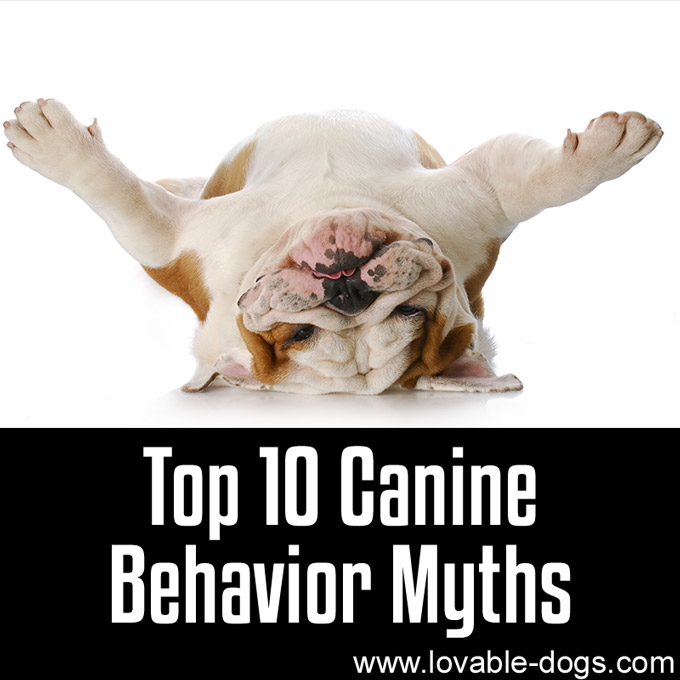
Top 10 Canine Behavior Myths – Image To Repin / Share
Photo – © Willee Cole – Fotolia.com
I came across a really interesting article by Whole Dog Journal about the top ten canine behavior myths. The article deconstructs some of these commonly-held misperceptions about dog behavior and explains why they are false. Prong collars, dog aggression, guilty behavior, begging for scraps and positive reinforcement training are some of the topics covered. The link to the full list is after our commentary.
Coming from someone who went through a phase of being cynophobic (afraid of dogs) after being bitten, I find that reading a post like this helps me understand a dog’s psyche. I remember as a small child I used to run away whenever a dog tried to sniff my feet. I used to associate that with smelling your food before eating and think I was going to get bitten! I realized later on that this is just a way for dogs to “identify” you and they really don’t mean any harm.
The myth that stood out for me the most was Myth #10: “Aggressive/hand-shy/fearful dogs must have been abused at some point in their lives.” Now it may be that some aggressive dogs have been abused, but it is not necessarily the case. Yet this myth is so prevalent that even experienced dog owners believe it.
I also learned that giving your pet a treat every time he does a good job is not the only way of giving positive reinforcement. Praise, affection and play are also great alternatives. I can really agree that positive reinforcement fares better than punishing your pet for bad behavior. Most people feel inspired and motivated when someone recognizes their efforts. This is the same with pets.
Another myth that I found interesting is the one about the puppies. When I was young, many people said that puppies are way more dangerous than adults because they haven’t been vaccinated yet, and therefore carry the threat of rabies. Now that I know better, I learned that puppies aren’t likely to be infected if they are not exposed to other animals other than the ones (assuming that they’re all healthy) at home.
During the growing up stage it is important for your dog to socialize with other animals so that it’ll still be able to retain its natural instincts. Some dogs are so isolated that they develop unruly behavioral patterns. If you want your puppy to interact with other dogs, ask for advice from your vet. Usually your dogs are given shots to protect them from the threat of contracting diseases.
Ok, here is the link to the full article:
http://www.whole-dog-journal.com/issues/11_2/features/Canine-Behavior-Myths_16004-1.html

